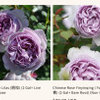Organic fungicide that works
teka2rjleffel
11 years ago
Featured Answer
Sort by:Oldest
Comments (69)
henry_kuska
11 years agolast modified: 9 years agohenry_kuska
11 years agolast modified: 9 years agoRelated Discussions
How often can I apply Daconil?
Comments (1)There's a lot of math involved, and the first thing you would need to know is how much any given volume of the product weighs. After you get your answer in how many pounds of the product you can apply per acre, you need to know how much product is in the volume you mixed and how you're going to deal with the transition between 'per acre' and 'per plant'. IOW, after you do the calculations, there is no way to apply them. If it's not in the literature on the label, I'd call Ortho and ask them how often you can/should use it. Al...See MoreOrganic fungicide needed asap!
Comments (13)I've lately been hit with powdery mildew on my pumpkins thanks to the last week of rain and insane humidity. Anyways the way I'm dealing with it is diluting skim milk with water (1 part skim to 9 parts water) then spraying all the leaves with that. The leaves that are goners I just clip off and throw away. For your tomatoes I would recommend doing the same. Spray them with the diluted skim milk, and clip off the infected leaves. Remove them and any dead leaves on the ground and put them in the garbage can to stop the spread of the disease. It also looks like you have some tomato branches/leaves touching the ground. I myself do not prune the suckers on my tomatoes but I do remove any foilage that is touching the ground. Also make sure to mulch around the stem of your tomatoes with straw or w/e you have laying around to prevent water from splashing from the ground onto your leaves. That's how most diseases infect tomato plants. Old zucchini leaves will yellow up and die, that's normal....See MoreActinovate organic fungicide-true or hype?
Comments (26)Actinovate? Oh what a beautiful mistress... Like many others I have used this product in awe. Because of my will to learn and my interest in Organics. I chose this evening and some in the past to do a bit of research on this product. My queries were from the idea of brewing this bacteria. I read through a lot of articles, threads, PDFs, research studies, etc. And I'm no microbiologist or scientist for that matter. Just a bright young man. Would you like to know what I found out? YES? Good! So this Microbe is found in soil and deep sea sand. First lets clarify that soil is different from dirt. Soil contains organic life of a varying degree where as dirt does not, only minerals. So there's the first kicker. So that means healthy soils, most likely have this bacteria in you soil. That is assuming there are plenty of beneficial micro-organisms in there. Streptomycin is the family this strain in. There are a lot of articles for where this stuff is found and I found a few showing the parent strains showing up in animal waste. Which leads me to believe that this bacteria is much like the ones in your stomach. Breaking food down so you can digest. And may be found in either common or uncommon livestock. Now what does S. Lydicus feed off of? I did the research and found that it converts all sorts of rotting compounds into other non harmful, bio-available compounds your soil or plants could use. Which makes it beneficial to you soil. It feeds off of sugars, yeasts and humates. Which are the aggregate breakdowns of organic material such as food and animal waste. Which is why in bagged soil you may find germinated spores from months prior living. It is important in compost, as well as in soil to maintain an active microbial colony. So give the sucker what it wants. I will let you read through the full studies to find out how to brew the strain. But I will let you know despite all the nay-Sayers it is possible. So is this a miracle product? Yes Do all gardens need this product? No BUT it could't hurt. soil must be maintained, as best as it can by nature. But we can help it along in the areas it has trouble with. If you have an issue with molds or root diseases they can be abated and even cured. But only with outstanding bio-remediation and diversification in your soil will one achieve a healthy garden. THANKS Dawn. REF:Characterization of Streptomyces lydicus WYEC108 as a Potential Biocontrol Agent against Fungal Root and Seed Rots [http://aem.asm.org/content/61/8/3119.full.pdf] Microbe Organics [http://microbeorganics.com/]...See MoreOrganic fungicide
Comments (8)After defoliating a few too many roses with the supposed "Cornel" formual for PM posted on this forum and elsewhere many years ago, I purchased a product called "Remedy". It is a "baking soda" based product. For roses that have low/ to mildly moderate susceptibility to PM in my climate it worked without any side effects (such as defoliation). It required religious weekly sprayings until the conditions for P.M were gone and is not systemic, so heavy rain can wash it off. Roses that were very susceptible to P.M still succumbed dispite this regimen...Banner Maxx is more effective against B.S. with tests showing only marginal protection against P.M. One of the most readily available non-organic protections against PM that works is Ortho's Rose Pride which contains the active ingredient Triforene (it also works against B.S.)...If being organic is the most important feature to you about a rose, then try and find roses that are not susceptible or only mildly so. Here is a link that might be useful: Remedy...See Moremichaelg
11 years agolast modified: 9 years agokarl_bapst_rosenut
11 years agolast modified: 9 years agoflaurabunda
11 years agolast modified: 9 years agoflaurabunda
11 years agolast modified: 9 years agoprofessorroush
11 years agolast modified: 9 years agohenry_kuska
11 years agolast modified: 9 years agohenry_kuska
11 years agolast modified: 9 years agoRpR_
11 years agolast modified: 9 years agomichaelg
11 years agolast modified: 9 years agogreentiger87
11 years agolast modified: 9 years agoRpR_
11 years agolast modified: 9 years agokarl_bapst_rosenut
11 years agolast modified: 9 years agohenry_kuska
11 years agolast modified: 9 years agomichaelg
11 years agolast modified: 9 years agoteka2rjleffel
11 years agolast modified: 9 years agohenry_kuska
11 years agolast modified: 9 years agomori1
11 years agolast modified: 9 years agoteka2rjleffel
11 years agolast modified: 9 years agomichaelg
11 years agolast modified: 9 years agoteka2rjleffel
11 years agolast modified: 9 years agoZyperiris
11 years agolast modified: 9 years agobuford
11 years agolast modified: 9 years agomori1
11 years agolast modified: 9 years agocactusjoe1
11 years agolast modified: 9 years agoteka2rjleffel
11 years agolast modified: 9 years agomichaelg
11 years agolast modified: 9 years agoerasmus_gw
11 years agolast modified: 9 years agoflaurabunda
11 years agolast modified: 9 years agomichaelg
11 years agolast modified: 9 years agoteka2rjleffel
11 years agolast modified: 9 years agoKrista_5NY
11 years agolast modified: 9 years agodublinbay z6 (KS)
11 years agolast modified: 9 years agohenry_kuska
11 years agolast modified: 9 years agoteka2rjleffel
11 years agolast modified: 9 years agodublinbay z6 (KS)
11 years agolast modified: 9 years agobuford
11 years agolast modified: 9 years agohenry_kuska
11 years agolast modified: 9 years agodublinbay z6 (KS)
11 years agolast modified: 9 years agohenry_kuska
11 years agolast modified: 9 years agokarl_bapst_rosenut
11 years agolast modified: 9 years agoZyperiris
11 years agolast modified: 9 years agoteka2rjleffel
11 years agolast modified: 9 years agobuford
11 years agolast modified: 9 years agoPaminWNC
11 years agolast modified: 9 years agoZyperiris
11 years agolast modified: 9 years agoRpR_
11 years agolast modified: 9 years agohenry_kuska
11 years agolast modified: 9 years ago
Related Stories

DECORATING GUIDESHow to Work With a Professional Organizer
An organizing pro can help you get your house together. Here's how to choose the right one and gain your own clutter-clearing skills
Full Story
MORE ROOMS6 Garage Organizing Tips That Really Work
National Clean Out the Garage Day: Here's how to clear the clutter and organize what's left
Full Story
ORGANIZING10 Principles of Organizing That Work in Every Room
Use these ideas to make it easier to find and put away your things
Full Story
KITCHEN DESIGNOrganizing Tips That Really Work: Pantry in a Drawer
Deep kitchen drawer keeps pantry items tidy and at hand
Full Story
HOME OFFICESMeet Your Desk: How to Create a Workspace That Works
Ask yourself: What should live on your desk and what can live elsewhere?
Full Story
DIY PROJECTS10 Home Projects to Work On Over Your Holiday Weekend
Make the most of your time windfall by accomplishing one of your back-burner tasks
Full Story
DECORATING GUIDESIdea of the Week: Work Your High Ceilings
Step Up to Overhead Storage with a Sleek Sliding Ladder
Full Story
SHOP HOUZZShop Houzz: 5 Stylish Ways to Make a Small Kitchen Work
Make the most of your small kitchen with organizing solutions and stylish additions
Full Story
FALL GARDENING5 Ways to Put Fall Leaves to Work in Your Garden
Improve your soil and yard the organic way with a valuable garden booster that grows on trees
Full Story







saldut